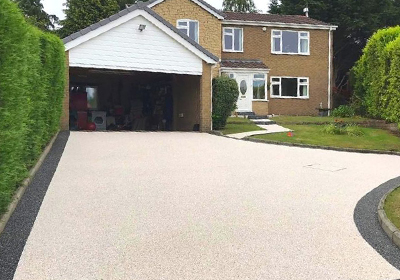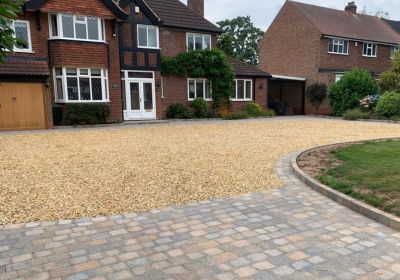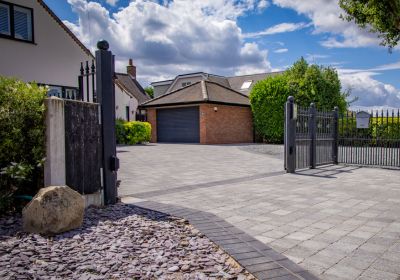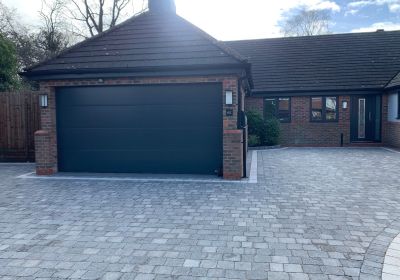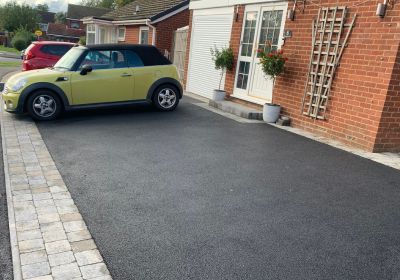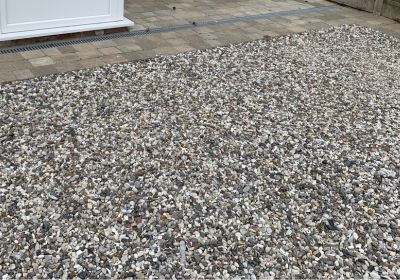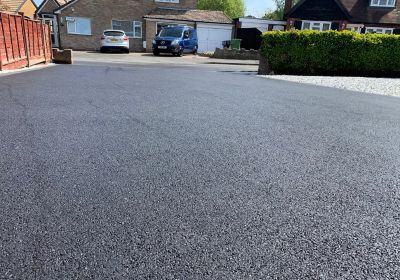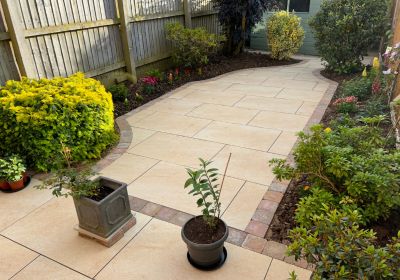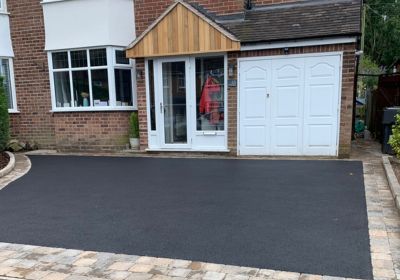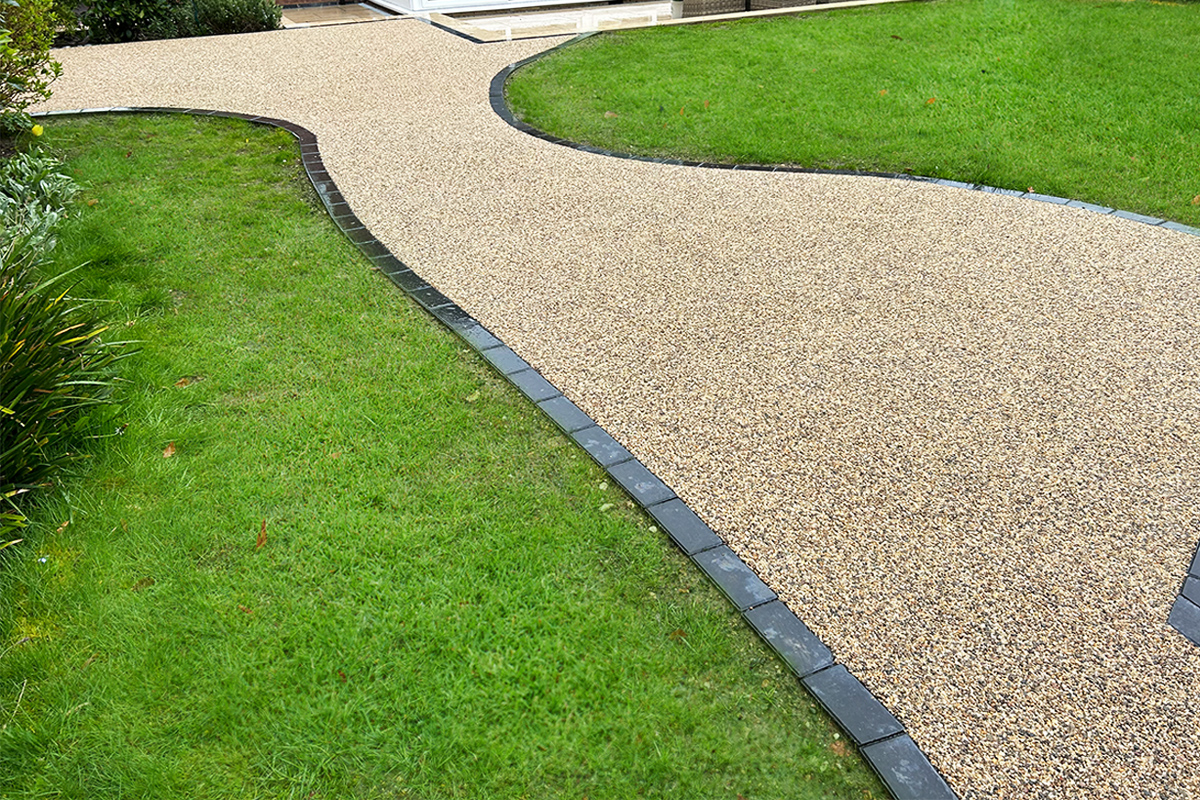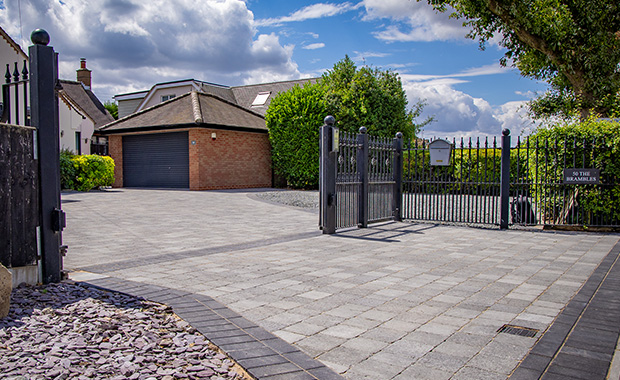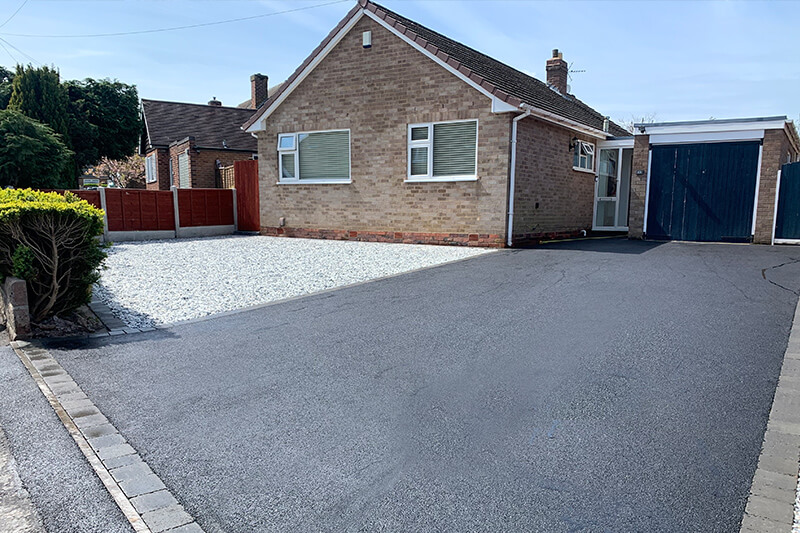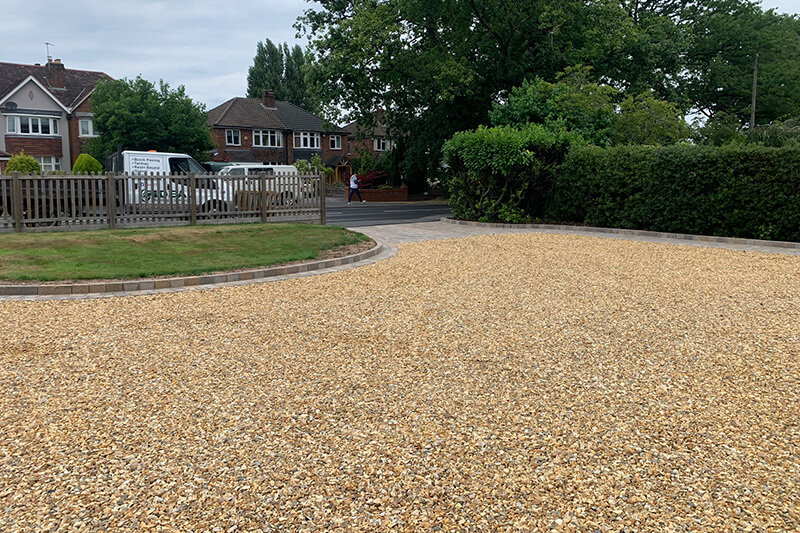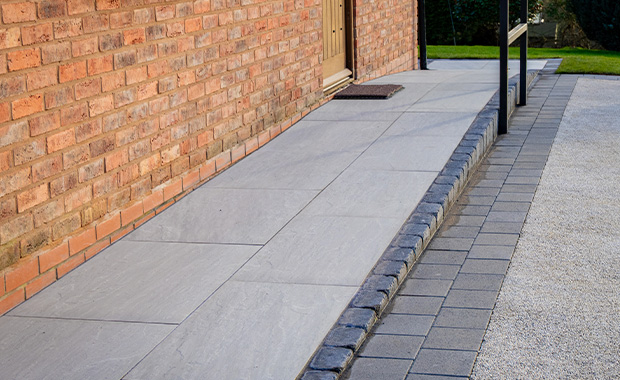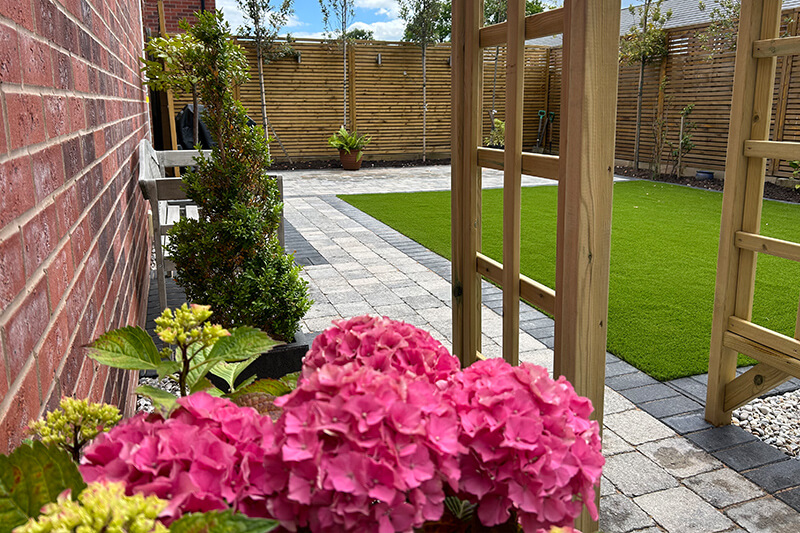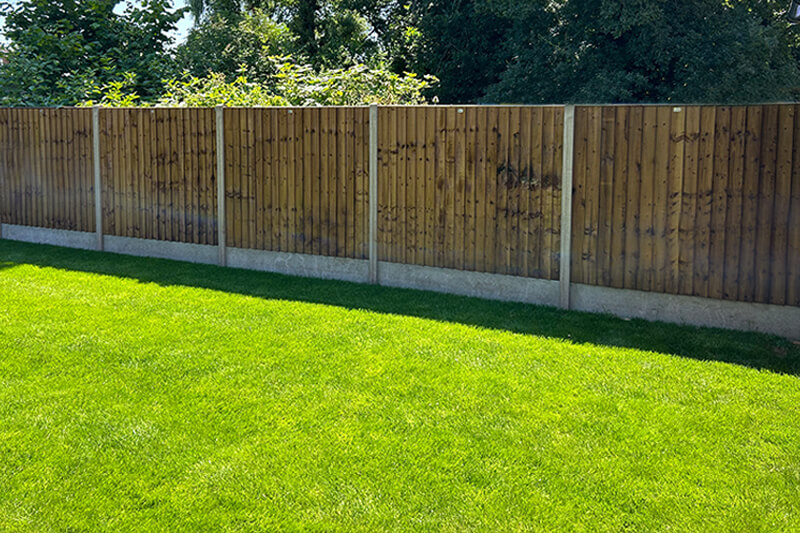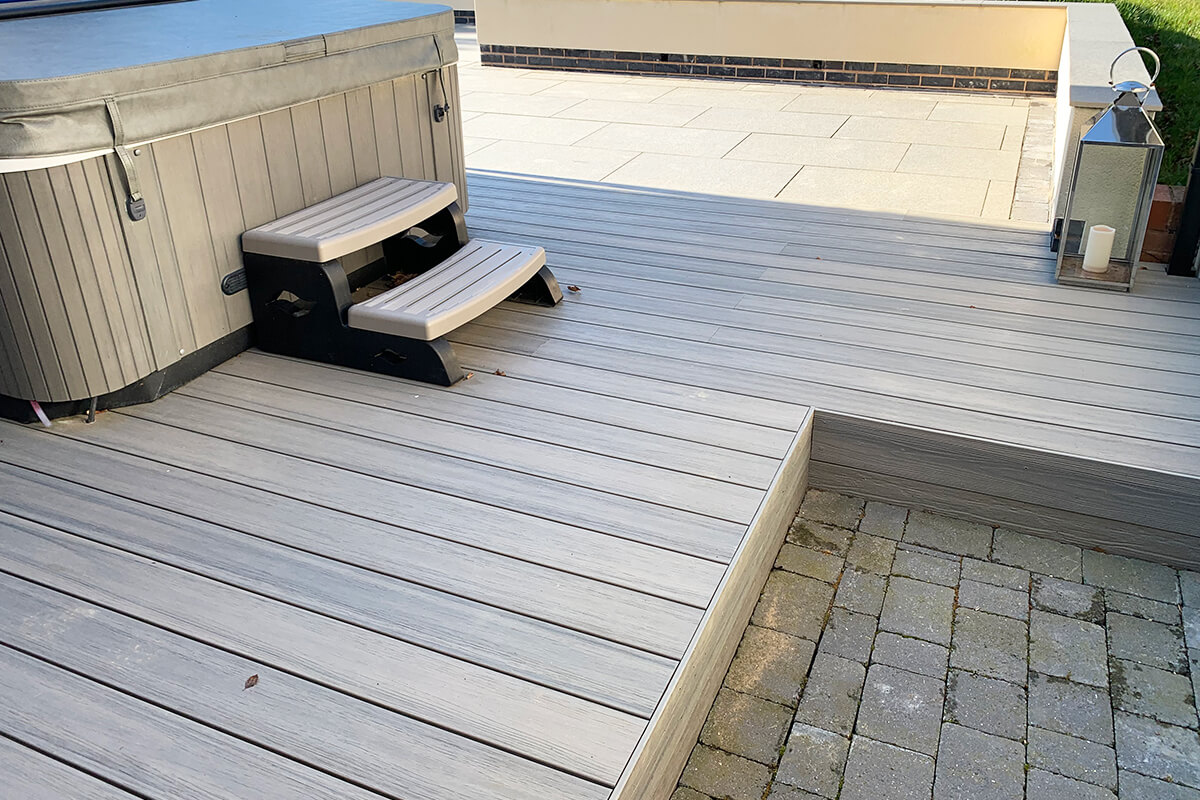The Most Common Driveway Mistakes & How To Avoid
A new driveway can be one of the most important investments you make for your home and lifestyle. Driveways are designed not only to provide parking and enhance your home’s functionality, but also to increase kerb appeal by making your home look more attractive and welcoming.
These benefits are only guaranteed through the correct driveway installation methods, which many homeowners may struggle with. Despite the importance of investing in proper driveway installation, many homeowners continue to make mistakes. This can lead to loss of money, wasted time, and a home that looks worse than it used to.
In this post, leading driveway installers Ideal Building & Landscapes are sharing some of the most common driveway mistakes homeowners encounter, so you know what’s at risk. We will explore what causes these common driveway mistakes and what they lead to, as well as, most importantly, how to avoid them during your own driveway installation.
1) Skipping Proper Ground Preparation
One of the most common driveway mistakes many homeowners fall victim to is failing to prepare the ground correctly. Ground preparation is essential for lasting and successful driveway installations.
Failing to prepare a suitable foundation can lead to lasting issues, including damage, instability, and poor safety, yet many homeowners skip this step because they believe it will save them time and money.
For most driveway installations, even a resin driveway, which can be installed over most existing surfaces, there are usually two stages of ground preparation that need to be done to ensure lasting strength and stability:
- Excavating Leads: This refers to digging out the existing surface and ensuring that the new driveway has a deep enough foundation to accommodate installation. Failing to dig deep enough can lead to poor drainage and sinking over time, and is essential for driveways such as block paving and gravel.
- Installing Sub-Base Layers: All driveways require a sub-base layer, whether this is crushed stone or specialist MOT Type 1. Sub-base layers are essential for strength, stability and overall longevity of your driveway, and are required to ensure the surface can withstand heavy traffic and repeated use.
To learn more about resin driveways, what they can be installed over, and the preparation needed for this, see our post Can a Resin Bound Driveway Be Laid Over Tarmac?
Groundwork like this is the backbone of your new driveway and must be considered in all installation processes. When working with professional driveway installers, like Ideal Building & Landscapes, you can rest assured that you will be avoiding these common driveway mistakes and driveway will be laid to the highest standards, as we cover all steps of the process
Our driveway team will avoid any issues regarding the strength and longevity of your driveway as we always include ground work, from excavation to sub-base installation, in our services. We will always make sure that the foundation and surface have been compacted and that the base layers are solid, seamless, and suitable for the requirements of your new driveway.
2) Ignoring Drainage Requirements
Drainage is an essential part of all driveway and paving installations, which is why it is included in all of our projects. Without the correct drainage, you will experience water pooling and flooding. These can lead to further issues, such as cracks, frost damage, and erosion.
For many areas, drainage is a legal requirement and is required for many driveway installations to prevent area-wide issues. Many homeowners are unaware of these requirements, leading them to make common driveway mistakes, like ignoring drainage completely.
To avoid these issues, all of our driveway installations include drainage. Based on your location and the kind of driveway you install, we will:
- Check local regulations before installation and ensure that your driveway is in line with local building requirements. This can include obtaining planning permission, if required.
- Build a slight slope (most driveways benefit from a ratio of 1:60) to direct water away from the house.
- Consider installing Aco channels, soakaways, or permeable paving to enhance drainage and support water runoff.
To learn more about permeable driveways and your options, see our post Everything You Need To Know About Permeable Driveways.
Sustainable Drainage Considerations
Sustainable Drainage Systems (SUDs) is one of these requirements when it comes to driveway installation, which homeowners may be unaware of. These are often preferred in many counties and regions, due to the way they manage rainwater runoff. SUDs are designed to mimic natural water runoff patterns.
Instead of letting water run off driveways and pave into shared street drains, which can cause flooding and pollution, a SUDs-compliant driveway allows water to soak back into the ground slowly and safely. This is commonplace for permeable driveways, such as resin driveways, and is preferred in many areas.
We can provide permeable driveway materials and ensure that to match SUDs requirements, if required.
3) Choosing The Wrong Materials
One of the most important considerations to make when investing in a new driveway is the material. While many homeowners consider how they want their driveway to look, they may fail to consider how they need it to perform, leading to poor material choices.
Not every driveway material is suitable for your climate, soil type or overall budget, and this needs to be considered to avoid common driveway mistakes. Failing to use the correct materials can lead to long-term issues, such as cracking, fading or even the surface shifting over time.
When working with a professional installer, you can rest assured that you are making the right material choices. We will first assess your landscape and determine the conditions, layout and climate. These will inform our material recommendations and the overall installation process, ensuring everything is in line with your specific needs.
We offer several driveway materials, including resin, block paving, gravel, and tarmac, allowing us to work with all requirements and create outdoor spaces that last. To determine what driveway is best for your needs, budget and style, see our post Types of Driveway Materials: Choosing the Best Option for Your Home.
4) Poor Edging and Finishing
Driveway mistakes do not just take place during the main installation, as they can also happen once the surface has been laid. Professional driveway installation covers all elements of the process, including edging and finishing.
The kind of edging and finishing required will vary based on your chosen material, but most driveways need additional structure and care to prolong their lifespan, ensure stability and enhance visual appeal. Edge restraints can prevent issues such as material spreading, causing the driveway to lose shape.
Untidy finishing also reduces kerb appeal and can lead to ongoing maintenance issues, making it difficult to keep your surface in top condition over time. Good edging is what separates a poor DIY installation from a polished professional one, and should be considered if you want to make your investment worthwhile.
As a leading driveway company, we offer edging and finishing for all driveways, and will ensure to:
- Install solid edge restraints to maintain the driveway shape and structure. This is often done using concrete haunching or metal edging, based on the driveway material.
- Finish surfaces evenly, ensuring no loose stones or rough patches.
- Use a sealant if recommended for your material type, such as block paving or resin, to enhance durability and appearance.
5) Neglecting Maintenance
One of the most common driveway mistakes many homeowners make is thinking the installation is the end of the work. Driveways require ongoing maintenance to keep them in prime condition and avoid damage.
The level of maintenance will vary based on the material; for example, resin driveways are incredibly low-maintenance and only require occasional cleaning, whereas block paving requires more maintenance, cleaning and weeding. To determine the best driveway material based on your maintenance needs, see our post What Is The Best Driveway Material For My Home?
Even the most well-made and professionally installed driveways need maintenance over time. Failing to do this can lead to stains, damage, and overall degradation of the surface.
It is important to think of driveway maintenance as extending your investment so you can avoid these driveway mistakes. Even the smallest effort can result in a lasting payoff.
Conclusion
To ensure that your new driveway is a worthwhile investment, you should avoid the most common driveway mistakes. Many homeowners fail to prepare the foundation correctly, choose the right materials, consider drainage and edging, as well as neglect ongoing maintenance, which can lead to the degradation of their driveway sooner.
Working with a professional paving company, like Ideal Building & Landscapes, is the best way to avoid these common driveway mistakes and ensure your new surface withstands the test of time. We offer a range of driveways, including block paving, resin and tarmac, to suit all needs and offer industry-approved services across Solihull, Bromsgrove, Redditch and the surrounding areas.
Contact Us Today
To learn more about our services or to request a quote, please contact the team today.
FAQs
What is a SUDs-compliant driveway, and do I need one?
SUDS stands for Sustainable Drainage Systems, and most UK homes require a SUDS-compliant driveway, or alternative drainage solutions such as soakways or channels, if your driveway is over 5m² and doesn’t use permeable materials. A SUDs-compliant driveway is designed to let rainwater drain naturally into the ground rather than running off into street drains. This helps prevent flooding, erosion, and pollution.
Do I need planning permission for a new driveway?
In most cases, planning permission is not needed for driveway installation. However, if the surface isn’t permeable or the water drains onto the street, permission may be required. Always check with local regulations ahead of driveway installation.
What’s the most durable driveway material?
Concrete and resin-bound driveways offer excellent durability, while block paving provides flexibility and easy repairs. The best choice depends on your budget and how the space will be used. We will work with you to determine the best driveway for your needs.

